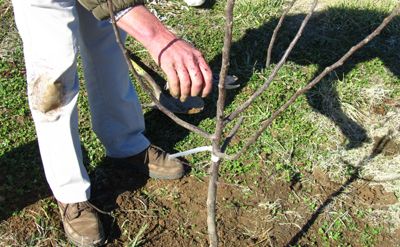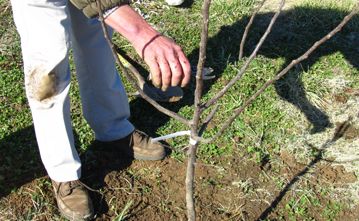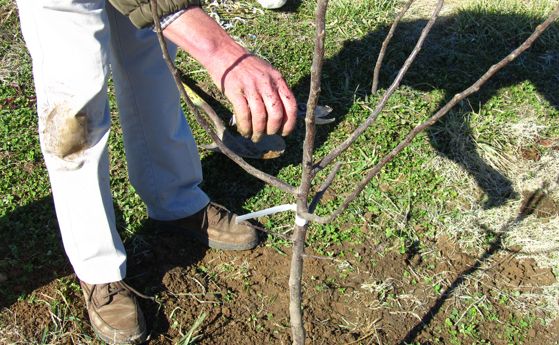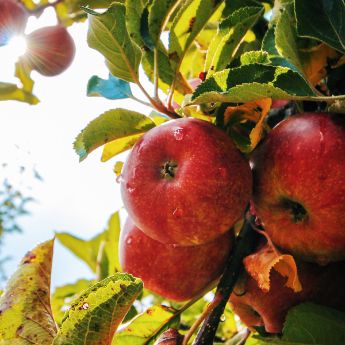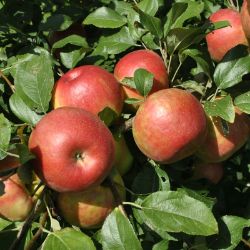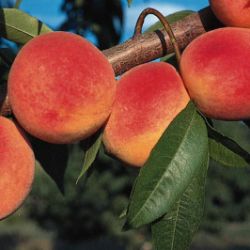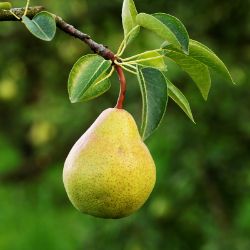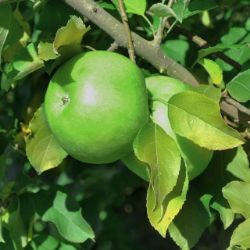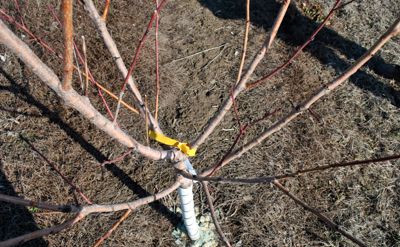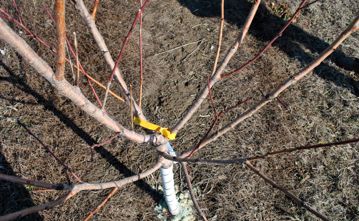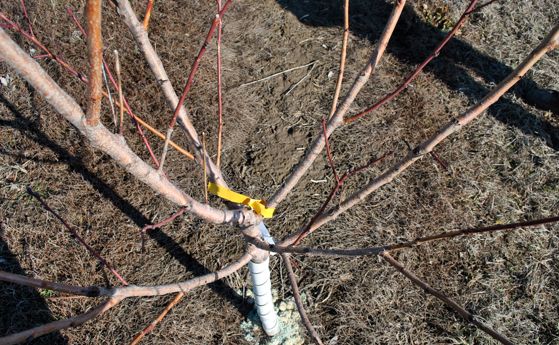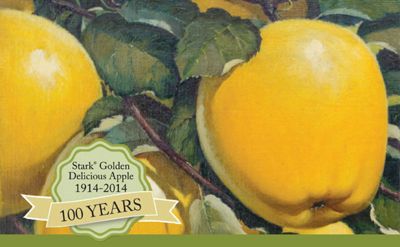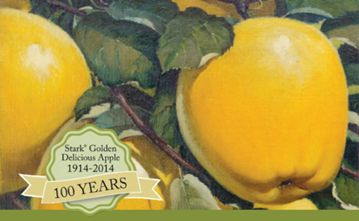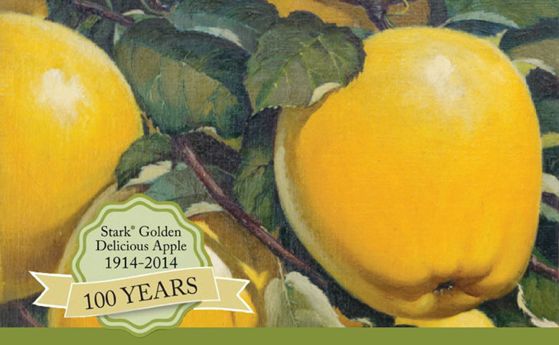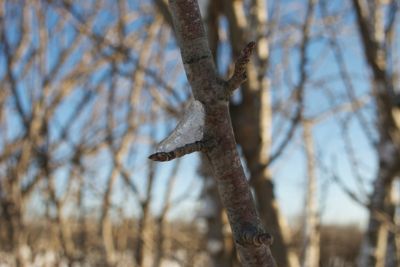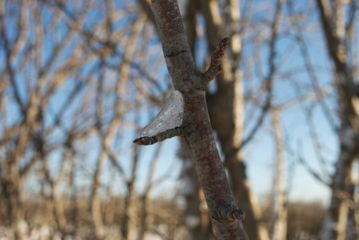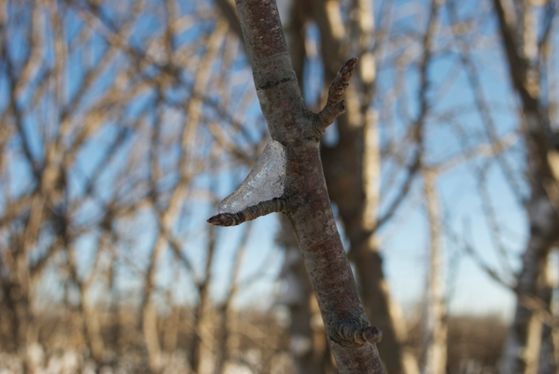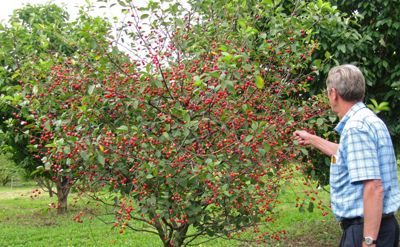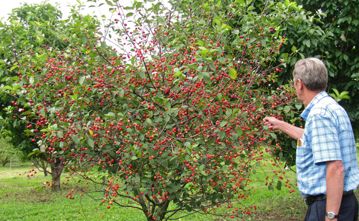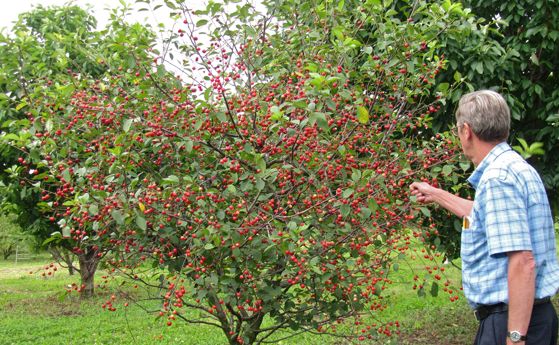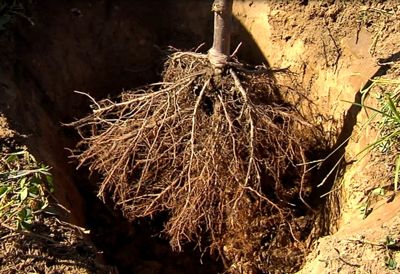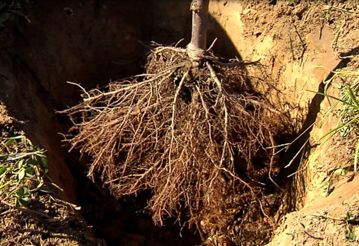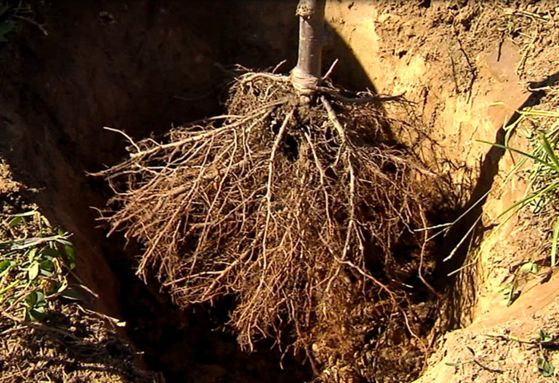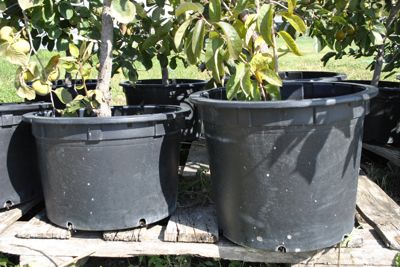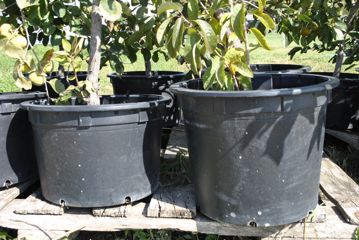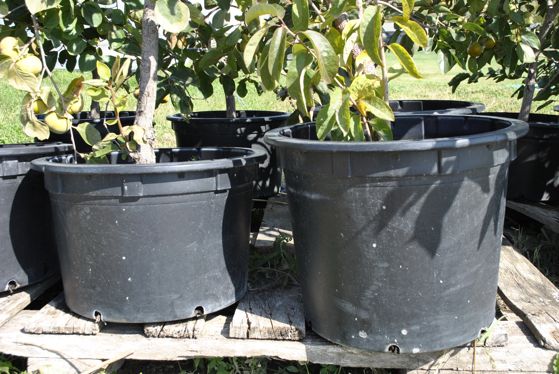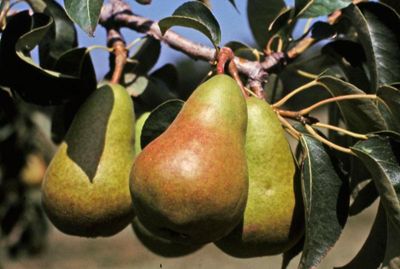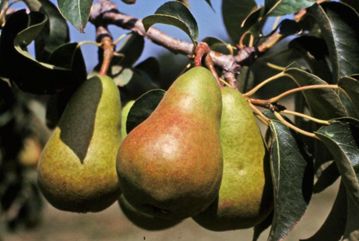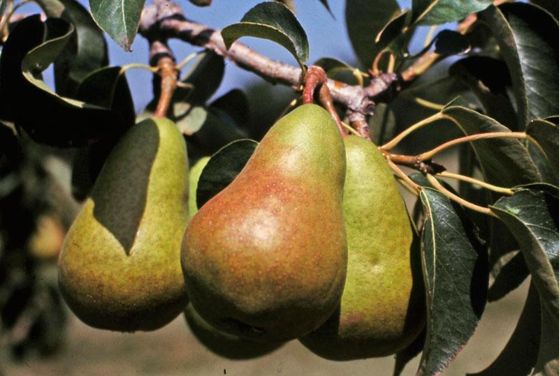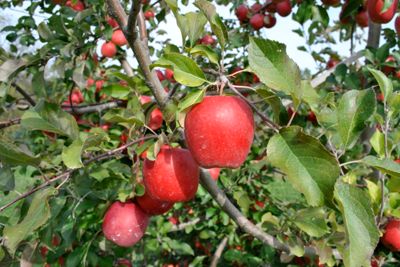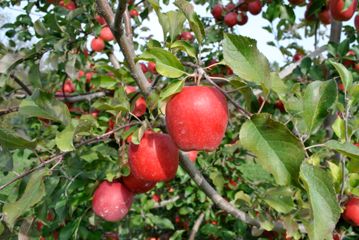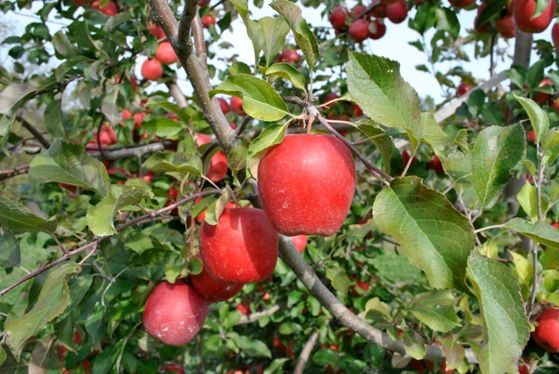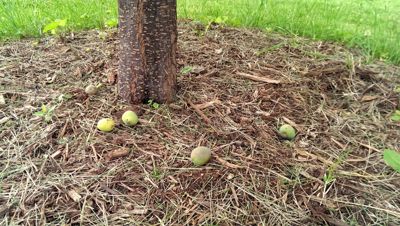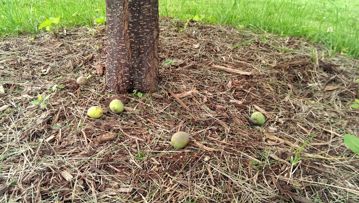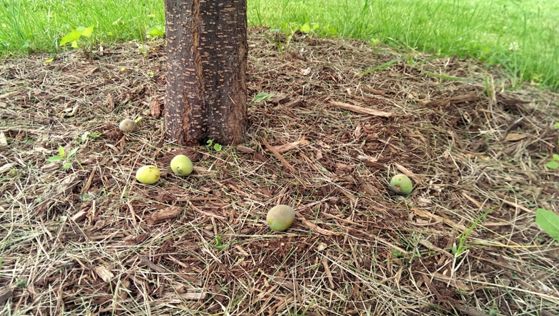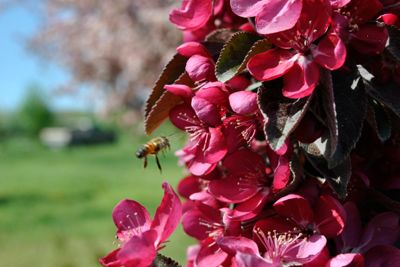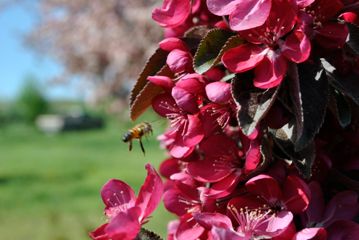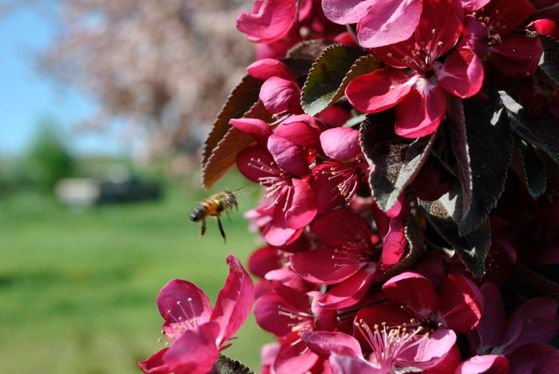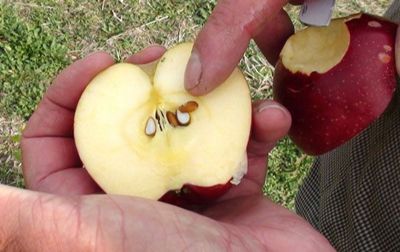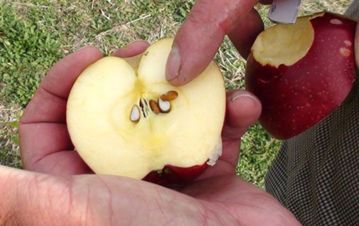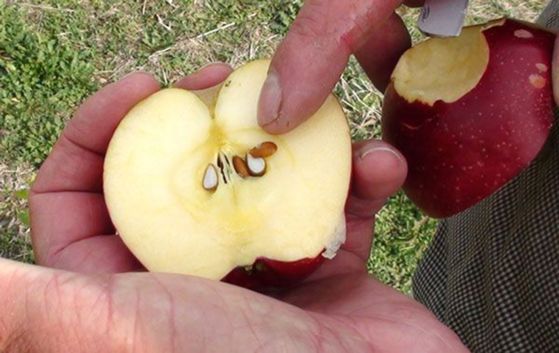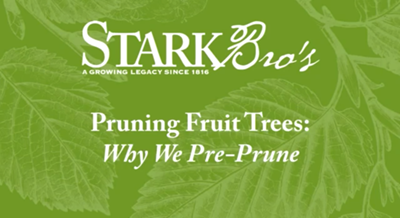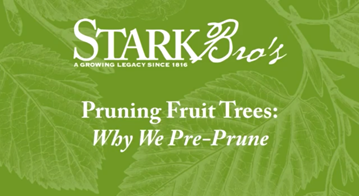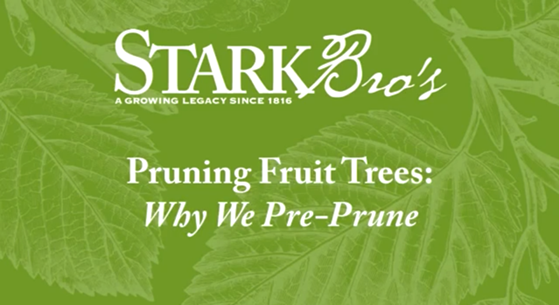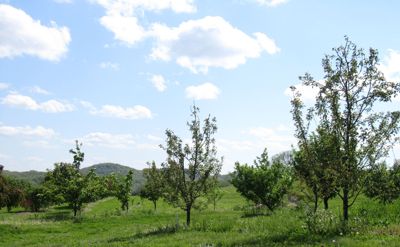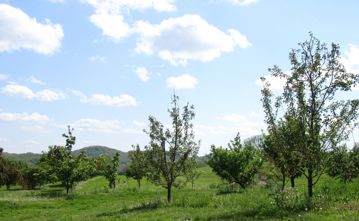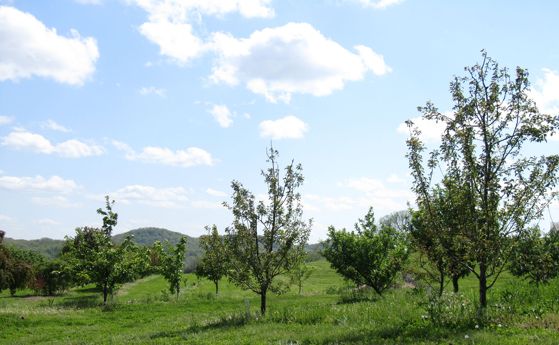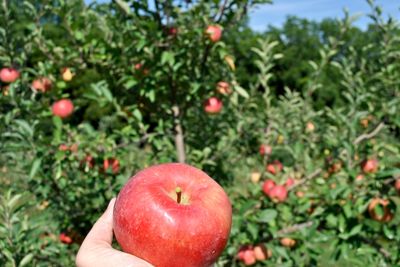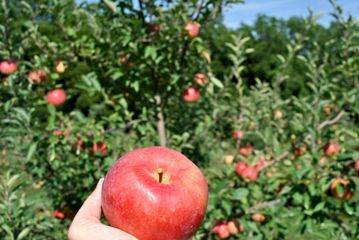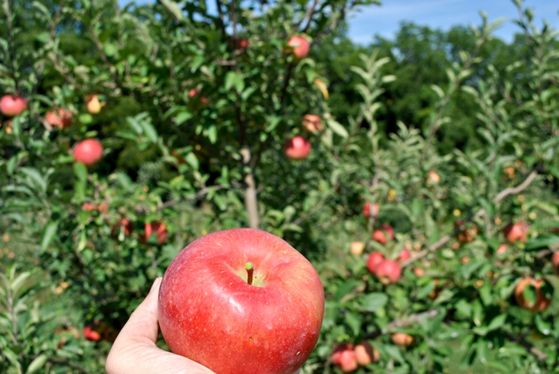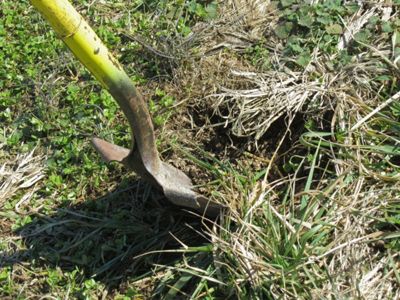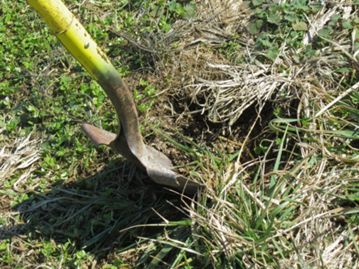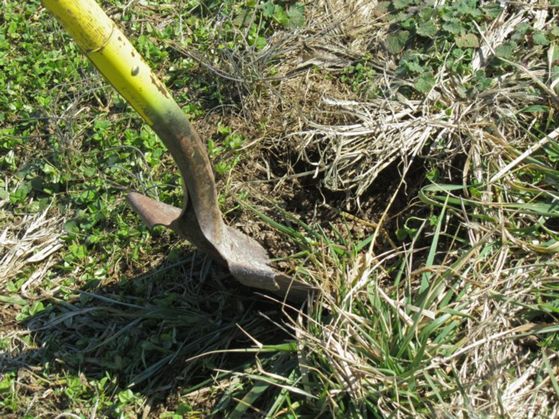Fruit Trees
Fruit Trees Buyer's Guide
Fruit trees can be planted any time of year as long as the soil is not frozen and the temperatures have not reached their peak heat. Tender fruit trees, like citrus and tropical trees, can be planted in pots and brought indoors for winter protection. Most fruit trees require another compatible variety for cross-pollination and fruit production; however, to save room and still get fruit, choose self-pollinating fruit trees. Some trees fruit within a year, while most bear fruit 2 to 4 years after planting. Once you taste that first piece of home-grown fruit picked perfectly ripe from the tree, it will be well worth the wait. Choose from our wide selection of trees for the perfect addition to your fruit garden.
- Disease-Resistant — Grow healthier trees with minimal spraying
- Heirloom — Add historical significance and diversity to your orchard
- Indoor — Grow fresh fruit inside your own home
- Multi-Grafted — The convenience of cross-pollinating varieties on one tree
- Stark Picks — Our easy-to-grow fruit trees
To ensure your growing success and satisfaction, there are a few things to consider when you buy a fruit tree.
Mature Tree Size
Make sure you pick the right size tree for your available space.
- Columnar Fruit Trees bear full-sized fruit on trees that stay under four feet wide. They are space-saving additions to your garden.
- Dwarf Fruit Trees are perfect when space is limited; they provide an abundance of full-size fruit that can be picked without using a ladder.
- Semi-Dwarf Fruit Trees are medium-sized and very productive; they give you maximum fruit yield per square foot.
- Standard Fruit Trees are a good choice if you have plenty of space or want a multi-purpose fruit & shade tree.
Proper Pollination
Pollination is vital to the successful production of fruit trees. Often, inadequate pollination is the reason why trees produce poorly or don’t bear fruit at all. To create the best pollination environment for your tree, make sure that you check our descriptions to see which pollinating varieties our experts recommend.
Some trees are self-pollinating, which is ideal if you don’t have growing space for a second variety. If you have room, we always recommend planting another compatible variety for optimum fruit production.
To help you choose the right pairing, explore our Fruit Tree Bloom Time & Pollination Charts to find compatible varieties that bloom at the same time for reliable cross-pollination.
Zone Compatibility
Your climate plays an important role in whether a tree will produce fruit or even survive. Before ordering a fruit tree, make sure its recommended hardiness zone range includes your area.
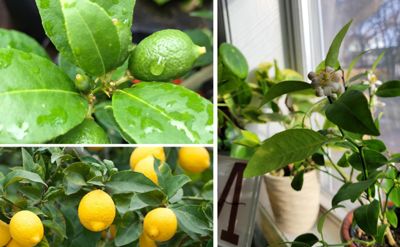
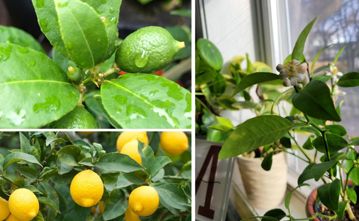
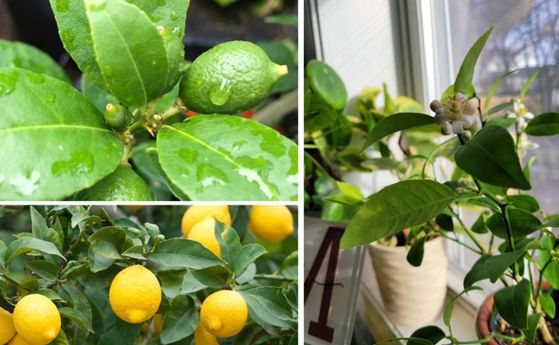 How to Prune a Young Pear Tree
How to Prune a Young Pear Tree
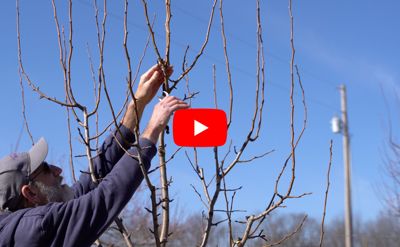
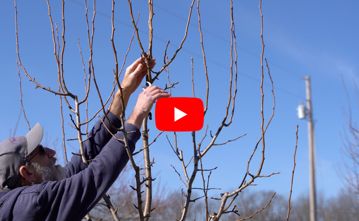
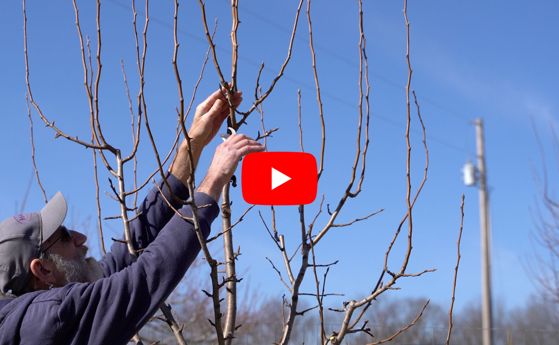 More Pollinators and More Nitrogen: Planting Clover Cover Crops in Your Orchard
More Pollinators and More Nitrogen: Planting Clover Cover Crops in Your Orchard
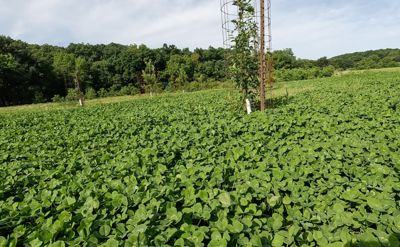
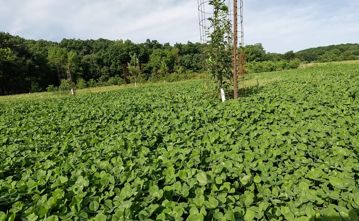
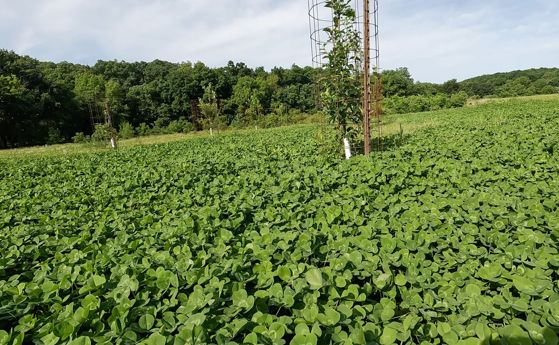 How to Thin Apple Trees
How to Thin Apple Trees
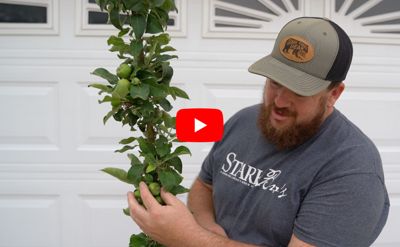
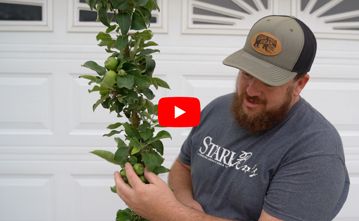
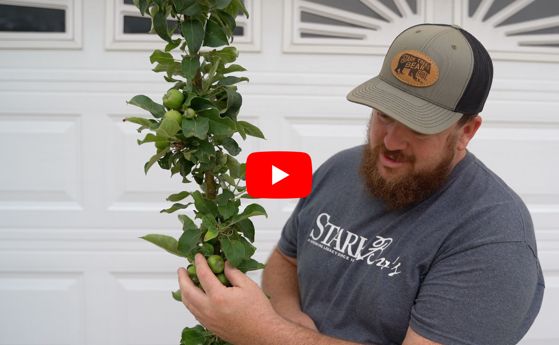 Boosting Orchard Efficiency: The Rise of Starkspur® Apple Trees
Boosting Orchard Efficiency: The Rise of Starkspur® Apple Trees
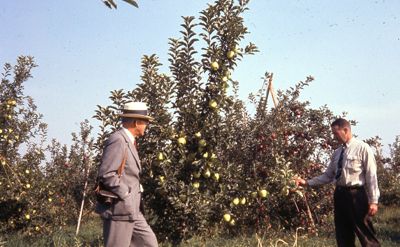
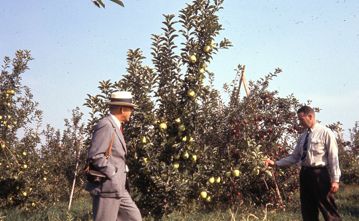
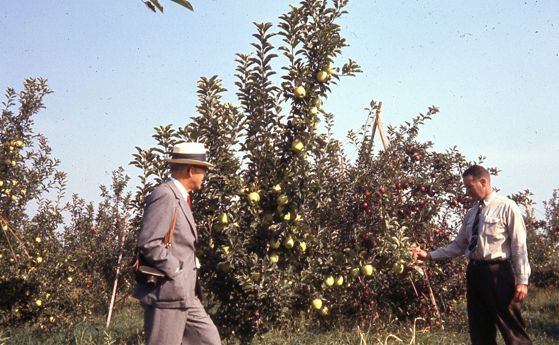 How To Prune A Peach Tree
How To Prune A Peach Tree
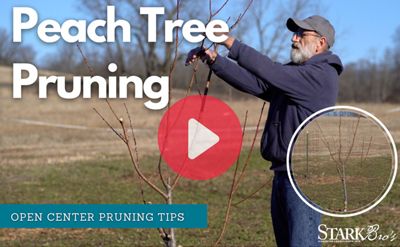
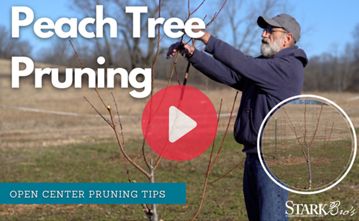
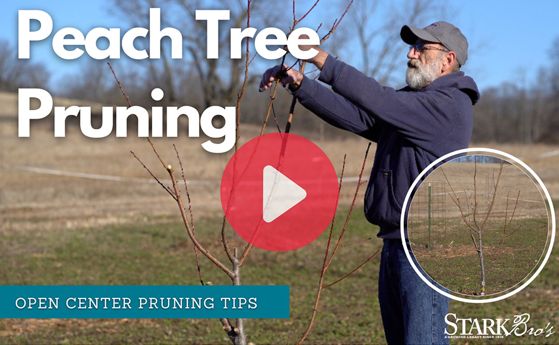 Growing Columnar Apple Trees in a Container
Growing Columnar Apple Trees in a Container
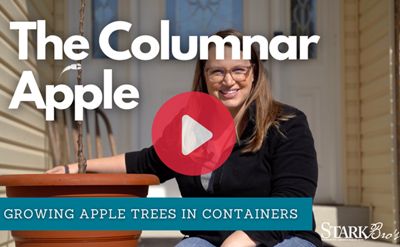

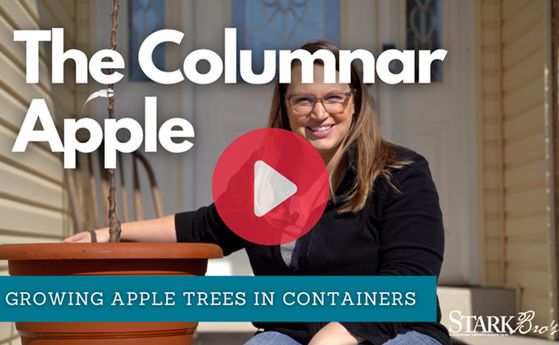 When and How to Spray Dormant Oil
When and How to Spray Dormant Oil


 Supreme XL Potted Fruit Trees
Supreme XL Potted Fruit Trees
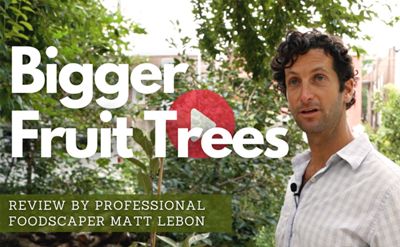
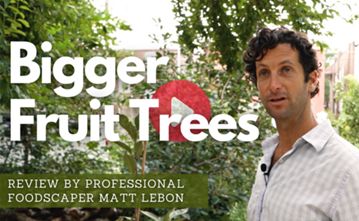
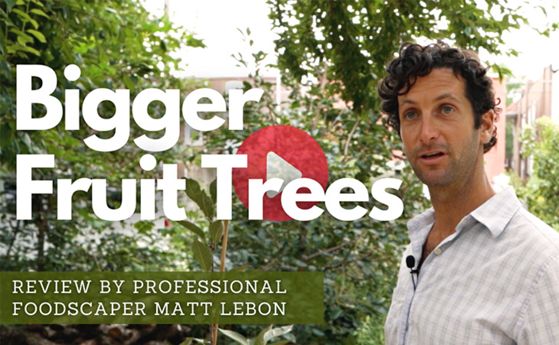 Chill Hours for Fruit and Nut Trees
Chill Hours for Fruit and Nut Trees
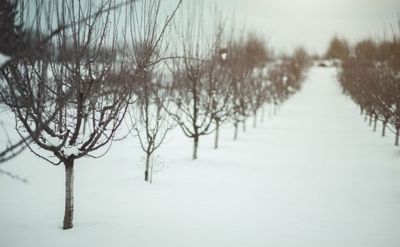
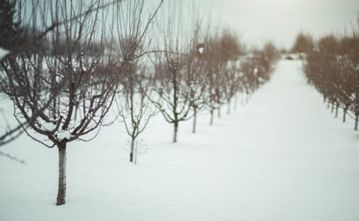
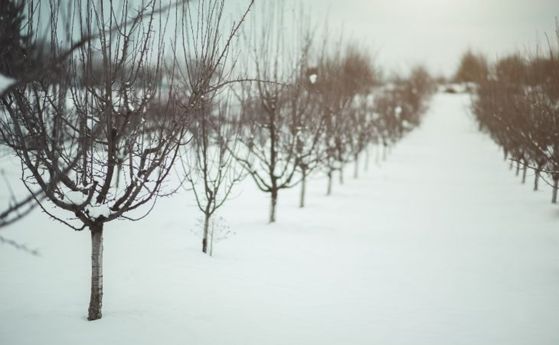 Fruit Trees: Choosing Where to Plant in 5 Easy Steps
Fruit Trees: Choosing Where to Plant in 5 Easy Steps


 Best Fruits for Partial Shade
Best Fruits for Partial Shade
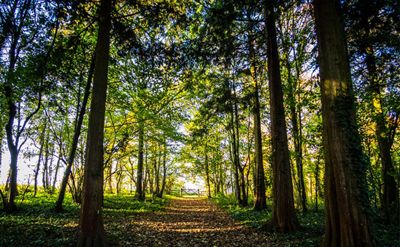
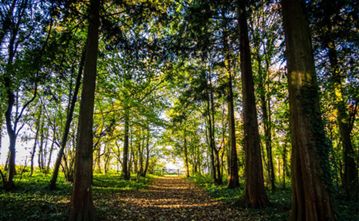
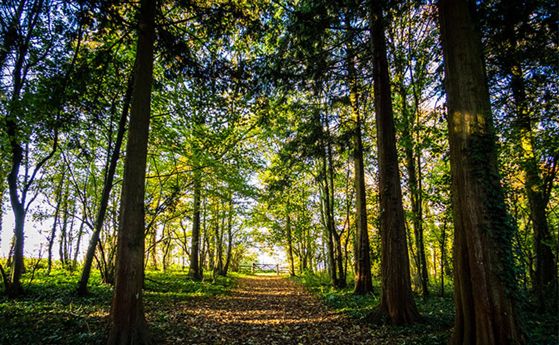 The Best Fruit-Tree Varieties for Organic Growing
The Best Fruit-Tree Varieties for Organic Growing
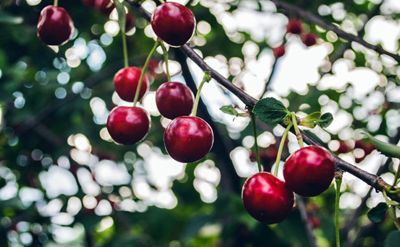
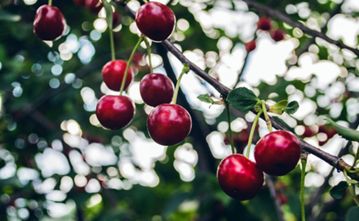
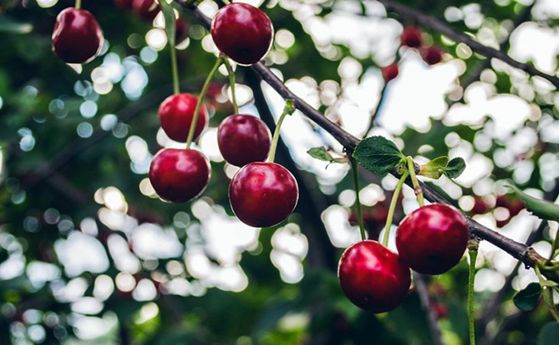 All About Tree Stakes
All About Tree Stakes
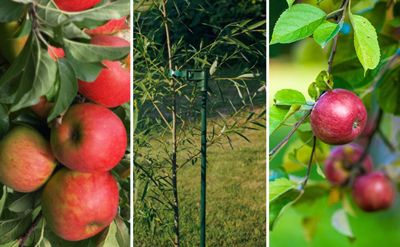
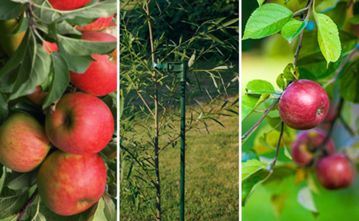
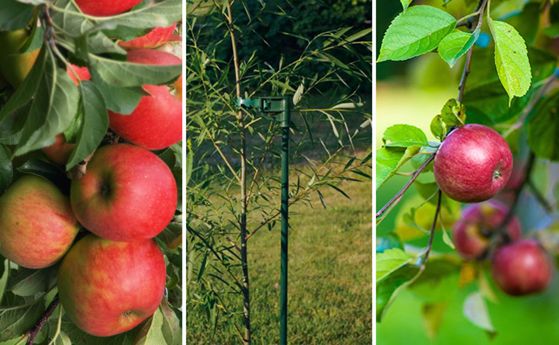 A Delicious Discovery: Red Delicious Apple
A Delicious Discovery: Red Delicious Apple
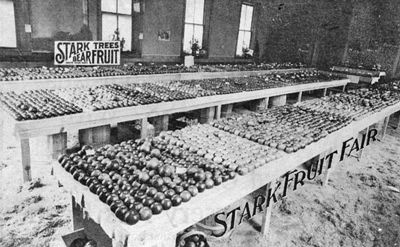
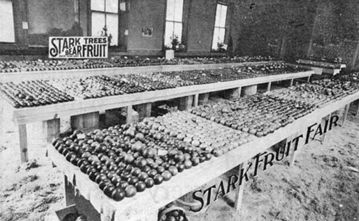
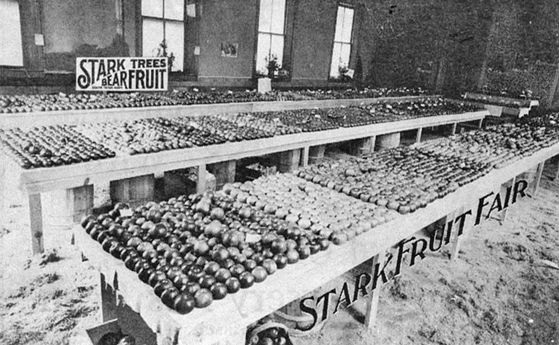 Estimated Yield for Fruit Trees
Estimated Yield for Fruit Trees
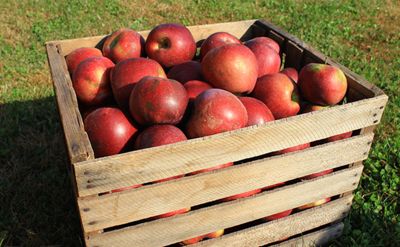
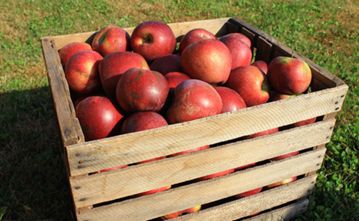
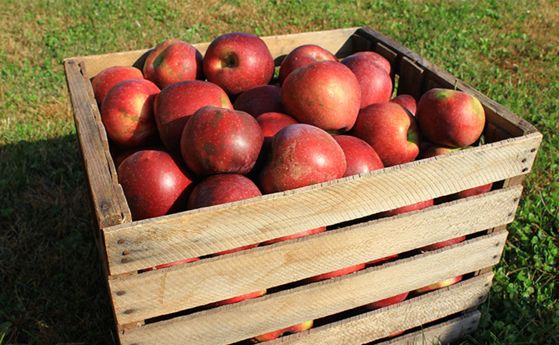 How to Espalier Fruit Trees
How to Espalier Fruit Trees
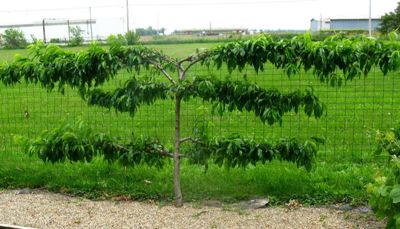
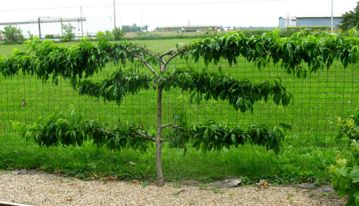
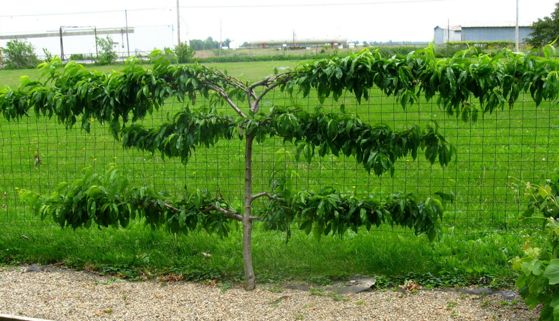 Pruning Fruit Trees: Central Leader
Pruning Fruit Trees: Central Leader
